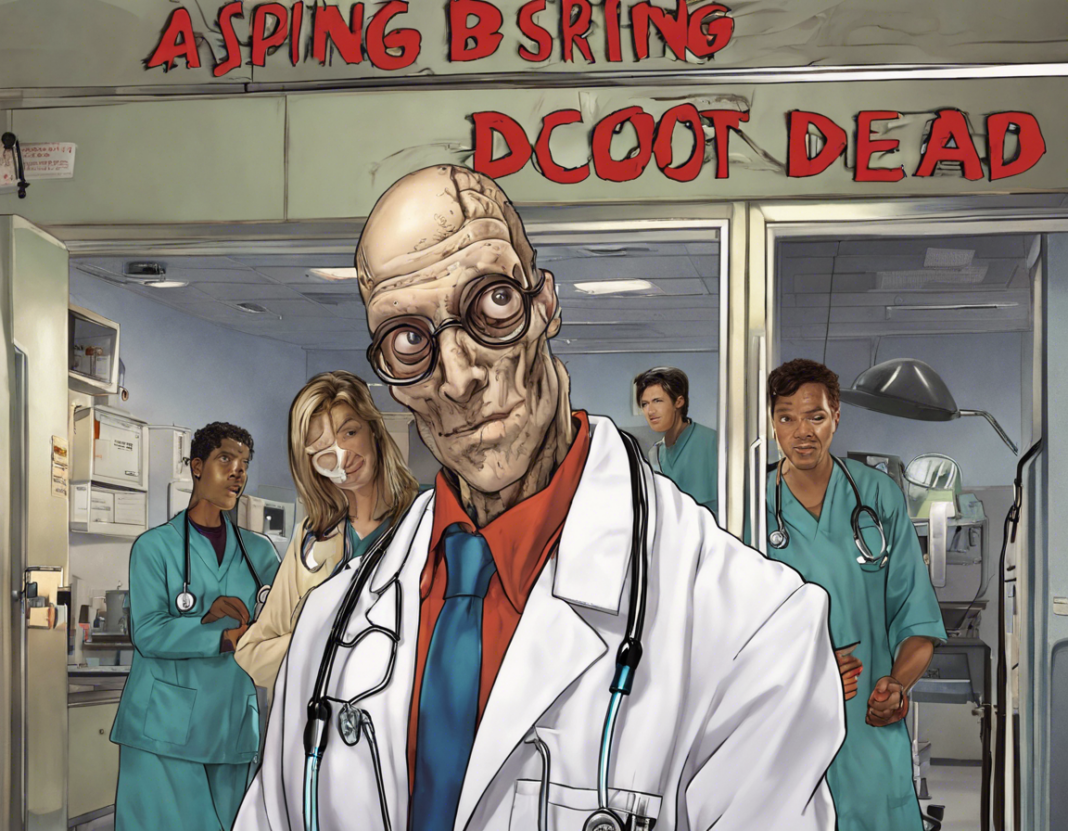In the realm of medical dramas, the 2016 film “Aspiring Doctor Left Brain Dead” stands out as a compelling and thought-provoking exploration of the ethical dilemmas surrounding healthcare decisions. The movie follows the story of Dr. Sarah Miller, a talented medical student with a promising future ahead of her. However, tragedy strikes when Sarah is involved in a car accident that leaves her with a severe head injury, rendering her brain dead.
The central conflict of the film revolves around the decision faced by Sarah’s family and medical team regarding her treatment. As brain death is declared, the question arises: should they keep Sarah on life support, or respect her wishes and let her go peacefully? This ethical dilemma becomes the crux of the narrative, as emotions run high and relationships are tested.
One of the key strengths of “Aspiring Doctor Left Brain Dead” is its nuanced portrayal of the various perspectives surrounding end-of-life care. The audience is given insight into the thoughts and feelings of Sarah’s family, the medical professionals involved in her care, and even Sarah herself through poignant flashbacks. This multi-dimensional approach adds layers of complexity to the story, prompting viewers to contemplate their own beliefs and values regarding life and death.
The film also shines a spotlight on the importance of advance directives and end-of-life planning. Through Sarah’s character, the audience is reminded of the significance of having conversations about healthcare preferences with loved ones and making informed decisions about one’s medical care. This serves as a powerful reminder of the value of ethical autonomy and the importance of honoring an individual’s wishes, even in the face of adversity.
As the narrative unfolds, “Aspiring Doctor Left Brain Dead” delves into themes of family dynamics, grief, and the limitations of modern medicine. The emotional weight of the story is palpable, tugging at the heartstrings of viewers as they witness the characters grapple with their own beliefs and fears. The film does not shy away from the harsh realities of end-of-life decisions, instead confronting them head-on with sincerity and sensitivity.
In addition to its gripping storyline, “Aspiring Doctor Left Brain Dead” boasts strong performances from its cast, particularly in the portrayal of Sarah by lead actress Emily Watson. Watson’s nuanced acting captures the essence of Sarah’s inner turmoil and resilience, drawing viewers into her character’s journey with empathy and authenticity. The supporting cast also deliver compelling performances, adding depth and dimension to the overall storytelling.
From a technical standpoint, the film is well-executed, with cinematography that captures both the intimate moments of reflection and the medical drama unfolding in the hospital setting. The pacing keeps the audience engaged, with moments of tension and introspection carefully balanced to create a sense of narrative momentum. The musical score enhances the emotional impact of key scenes, underscoring the poignancy of the story being told.
In conclusion, “Aspiring Doctor Left Brain Dead” is a poignant and thought-provoking exploration of end-of-life decisions and the complexities of medical ethics. Through its compelling storytelling, nuanced performances, and thematic depth, the film invites viewers to reflect on their own beliefs and values regarding life, death, and the importance of honoring one’s wishes in times of crisis. It serves as a powerful reminder of the fragility of life and the importance of cherishing each moment we have with loved ones.
Frequently Asked Questions (FAQs)
- What does it mean to be brain dead?
-
Brain death is a medical condition defined as the irreversible cessation of all brain activity, including the brain stem. It is considered legal death in many jurisdictions.
-
What is the difference between brain death and a coma?
-
A coma is a state of prolonged unconsciousness where a person is alive but unable to wake up, whereas brain death is the complete and irreversible loss of all brain function.
-
Why is it important to have an advance directive?
-
An advance directive is a legal document that allows individuals to specify their healthcare preferences in advance, ensuring that their wishes are respected in the event that they are unable to communicate them themselves.
-
What role do healthcare proxies play in end-of-life decisions?
-
A healthcare proxy is a person designated to make medical decisions on behalf of an individual if they are unable to do so themselves. They play a crucial role in ensuring that the individual’s wishes are upheld.
-
How can families navigate end-of-life decisions together?
- Open and honest communication is key when navigating end-of-life decisions as a family. It is important to respect each other’s perspectives, listen actively, and make decisions based on the best interests of the individual in question.
By addressing these FAQs and delving into the complex themes explored in “Aspiring Doctor Left Brain Dead,” viewers can gain a deeper understanding of the ethical considerations surrounding end-of-life care and the importance of honoring one’s wishes in times of crisis. The film serves as a poignant reminder of the fragility of life and the power of love and compassion in the face of difficult decisions.
